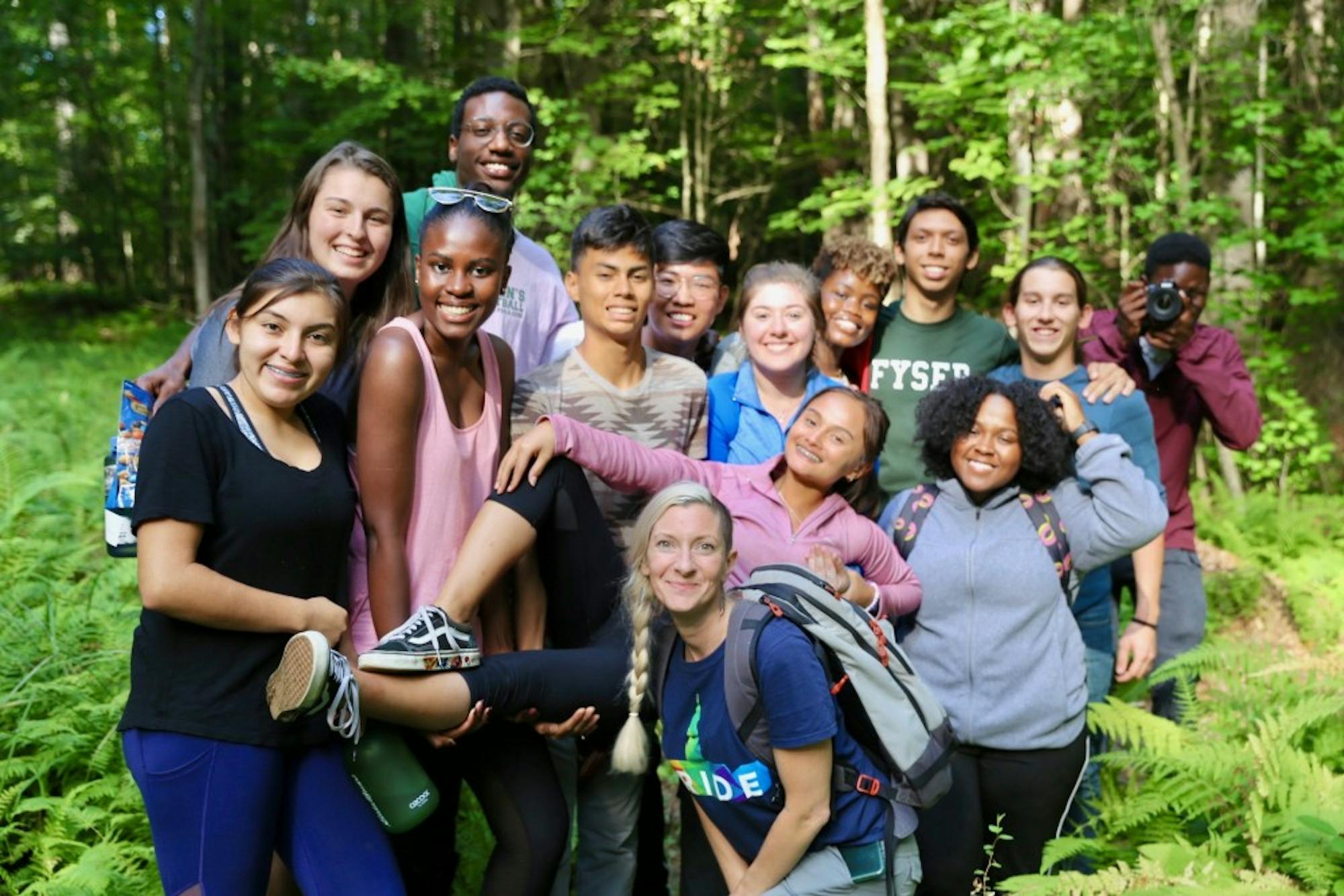Major changes to Dartmouth’s First Year Student Enrichment Program will soon be underway, according to an announcement made at a recent capital campaign event for the College. FYSEP — a pre-orientation program designed for first-generation and low-income students — will expand its programming from five days to four weeks beginning in August 2020. The expansion of FYSEP will be funded by $13 million in alumni contributions, $10 million of which were donated by A. George “Skip” Battle ’66.
FYSEP director Jay Davis ’90 said he was eager to begin making improvements to FYSEP’s programming.
“The five days that FYSEP currently has have been a powerful period of time to develop a sense of belonging and a sense of community support, which is incredibly important,” Davis said. “What’s harder to do in that amount of time is to prepare students for the academic transition here and to have them be able to be ideally as fully prepared to thrive academically, so that’s one of our goals now.”
While Davis said that it is too early to comment on specific activities planned for the expanded program, he suggested that the four-week span will allow FYSEP to offer a wider array of activities and workshops focused on community building and identity exploration, as well as a significant expansion of its preparatory academic courses. As an example, he proposed that future FYSEP students may have the opportunity to participate in a variety of simulation courses aimed at familiarizing themselves with college-level writing techniques or STEM-based learning over the course of several weeks. This would replace the two simulation class periods that FYSEP students currently participate in. During these periods, students have the opportunity to take practice multiple-choice exams and develop strategies to engage with professors.
Additionally, Davis noted that the overlap between the four-week program and summer term will allow students to sit in on an actual college course and interact with current students. The extended duration of the program will also yield more free time between sessions, he said.
“The current iteration of FYSEP is intense, and we cram as much as we can into it,” Davis said. “Students also need space to reflect and to connect with each other, and I think we’ll feel a bit less pressure with this expanded program.”
According to Davis, preliminary work on the program has begun, with faculty and first-generation student focus groups currently being consulted to gather feedback.
Battle — who grew up in a poor, rural town in Rhode Island and was the first in his family to attend a four-year university — emphasized the importance of making a Dartmouth education accessible to students of all socioeconomic backgrounds.
“It’s getting tougher and tougher for kids of modest families to be able to handle the cost of an elite college,” Battle noted. “I think about how many great young men and women out there have the capacity of flourishing in a highly advanced academic institution, but the costs are just extremely high. So it makes sense to do anything that can be done to help these students.”
Upon graduating from Dartmouth, Battle held various managing positions at Arthur Andersen LLP and Andersen Consulting LLP, served as the CEO of Ask.com, and currently sits on the board of directors for companies such as Netflix and LinkedIn.
Battle stressed that he will leave the use of his funds up to the discretion of FYSEP’s coordinators.
“I have a lot of confidence in FYSEP’s team,” he said. “They’ll figure out what the right thing to do with the money is.”
FYSEP students Sunpreet Singh ’20 and Yazmin Ochoa Flores ’21 both stressed the impact of the program on their experiences at Dartmouth.
“I think [FYSEP] is extremely important to us because it’s given me, and I think a lot of students, a really good community to turn to,” Ochoa said. “We’re coming from a different background than most of the students here … and I know that even if I didn’t get really close with some of the people I met [during FYSEP], it’s still a lot easier to talk with them because I know we’ve shared these experiences.”
Singh similarly noted the significance of the FYSEP community in easing his transition into Dartmouth.
“[FYSEP] has been a huge support for me, and the fact that they’re getting this opportunity to expand is really exciting because it’s already so awesome, but this will give them even more opportunities to improve,” Singh said.
Singh also expressed hope that the funds would be used to address issues such as food insecurity among low-income students or help these students afford textbooks and other academic resources.
With improvements to FYSEP on the horizon, Davis emphasized that the program will reaffirm its commitment to helping first-generation and low-income students succeed at Dartmouth.
“We’re really excited about the opportunity to even better prepare these amazing young men and women to take advantage of the opportunities Dartmouth has,” Davis said. “Dartmouth is a better place because these students are here, so the better prepared they are to thrive here, then the better the overall community will be.”
Singh is a former member for The Dartmouth Staff.
Elizabeth Janowski '21 is the news executive editor of the 177th directorate. Hailing from Brookfield, Wisconsin, she is pursuing a double major in history and film and media studies.




